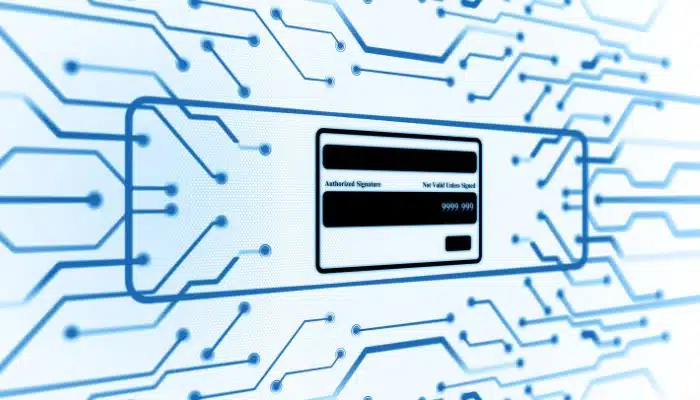
A payment gateway is an essential component of online financial transactions, acting as an intermediary between merchants and financial institutions.
These gateways allow businesses to accept payments from their customers through various forms, such as credit cards, debit cards, bank transfers, and even online payment platforms.
The main role of a payment gateway is to facilitate and secure the safe transfer of financial information between the buyer, the seller and the financial institutions involved. It acts as a secure conduit that authorizes and verifies payment information, managing the communication between the parties to process the transaction.
In this article, we will tell you in detail what payment gateways are, how they work and their importance in e-commerce. We will analyze the security mechanisms, verification processes and information flow that ensure reliable and secure financial transactions in the digital environment.
Payment gateway is a technological system that acts as an intermediary between an online merchant (such as a web store) and financial institutions (such as banks or credit card providers). This system facilitates and ensures the secure transfer of financial information to process electronic transactions.
The payment gateway allows customers to make online payments for goods or services using various methods, such as credit cards, debit cards, bank transfers or other digital payment platforms.
This system verifies the customer’s card information, authorizes the payment and transfers the funds from the buyer’s account to the seller’s account.
In other words, the payment gateway acts as a secure channel that validates and transfers financial information between the buyer, the seller and the financial institutions involved, ensuring the authenticity of the transaction and protecting sensitive information during the online payment process.
A payment gateway operates as follows:
This process occurs in a matter of seconds and ensures that the transaction is secure and efficient, protecting the customer’s financial information and allowing the online merchant to process purchases reliably.
Having payment gateways in an online business provides a number of benefits that contribute to the efficiency and security of transactions. Some of these benefits include:
There are different types of online payment gateways, each with specific features and functionalities that adapt to the needs of e-commerce. Some of the most common types are:
These types of payment gateways provide diverse options to suit the specific needs of online businesses. They offer different functionalities and approaches for secure and efficient transaction processing.

Yes, payment gateways are usually secure due to a series of measures and protocols implemented to protect financial information and ensure secure transactions.
These are some of the reasons why they are considered safe:
They use encryption protocols, such as SSL (Secure Sockets Layer) or TLS (Transport Layer Security), to protect sensitive information during transmission. This ensures that the data is encrypted and cannot be intercepted by third parties during the payment process.
Payment gateways typically comply with established security standards, such as PCI DSS (Payment Card Industry Data Security Standard), which establishes guidelines to ensure the security of payment card data.
Many gateways employ fraud detection systems and tools that help identify suspicious activity and prevent fraudulent transactions.
Regular security updates are performed and continuously monitored to identify and address potential vulnerabilities.
Some gateways use tokenization, which replaces sensitive data with tokens, improving security by not storing critical information.

When selecting a payment gateway for an online business, it is essential to consider several aspects in order to choose the most suitable option. Some factors to consider are:
The main difference between a payment gateway and a payment processor lies in their functions and the way they are integrated into the online financial transaction process:
It acts as an intermediary between the online store and the customer’s financial institution. It handles the authorization and verification of the transaction, facilitating the secure transfer of information between both parties. Basically, it communicates with the financial institution to ensure approval or rejection of the transaction.
It is responsible for the processing of the financial transaction. Manages the transfer of funds between the buyer’s and seller’s bank accounts, completing the transaction. Payment processors may offer additional services, such as recurring payment management or e-commerce account management.
some examples of payment gateways that are commonly used by e-commerce businesses:
It offers a wide range of online payment services, including acceptance of credit and debit cards, as well as digital payment methods.

One of the most widely known and used online payment systems worldwide. It allows users to send and receive electronic payments securely.
Provides secure payment solutions for online merchants, offering card processing and payment management options.
It offers a global payment gateway that allows businesses to accept online payments in more than 200 countries and with multiple payment methods.
A payment processing platform that facilitates online transactions, with a wide range of payment methods and international coverage.
Owned by PayPal, it offers online payment solutions for businesses, including credit cards, debit cards and digital wallets.
These payment gateways offer a variety of services that can be tailored to the specific needs of e-commerce businesses, providing secure and reliable options for processing online transactions.
choosing the right payment gateway can make all the difference in customer satisfaction and the success of an e-commerce business. If you need personalized advice, do not hesitate to contact us, at Kiwop we are ready to help you.
If you want to have the website you want or increase the online visibility of your brand, we know how to do it.
Shall we start today?
Leave a Reply